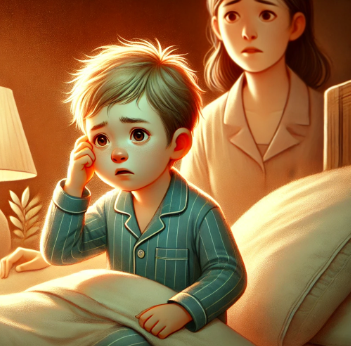Drunken sleep

The Sleep Chair of the University of Granada-GrupoLoMonaco has estimated that 17% of minors suffer from "The drunkenness of sleep", "confusion when waking up", "confusional arousal" or "sleep inertia".
The drunkenness of sleep, more in children
The so-called drunken sleep disorder It affects adults and children, but in childhood, it is when it is most common. Although in children it is a benign disorder, in adults it is usually associated with, such as sleep apneas.
How it manifests
It consists of awakenings during the first third of the night. Upon awakening, the child is confused, disoriented, cannot speak clearly, and his movements are uncoordinated and slow. There may even be memory impairment, that is, you do not remember what happened before or during the episode. It is precisely due to this loss of faculties that this disorder is called "sleep drunkenness", since its symptoms are very similar to those of a drunk person. Yelling, crying, or aggressive behavior may simulate a tantrum, but it is not.
They are episodes that last about fifteen minutes, are self-limited and do not require treatment. It is recommended to go to a sleep unit if the episodes are very frequent, to carry out an evaluation of the child or adult.
To do
Experts in sleep disorders seem to link the appearance of "sleep drunkenness" with states of stress and anxiety when going to bed. Therefore, the practice of physical exercise, not going to bed after watching stimulating movies, or going from work or study directly to bed or doing some type of relaxation routine before sleeping, can be excellent techniques to avoid its appearance.
- Upon awakening, the child is confused, disoriented, cannot speak clearly, and his movements are uncoordinated and slow.
- Sleep disorder experts seem to link the onset of "sleep drunkenness" with states of stress and anxiety at bedtime.
- relaxation routines, not going to bed after watching stimulating movies, or going directly from studying to bed can prevent their appearance.
(Updated at Feb 26 / 2025)